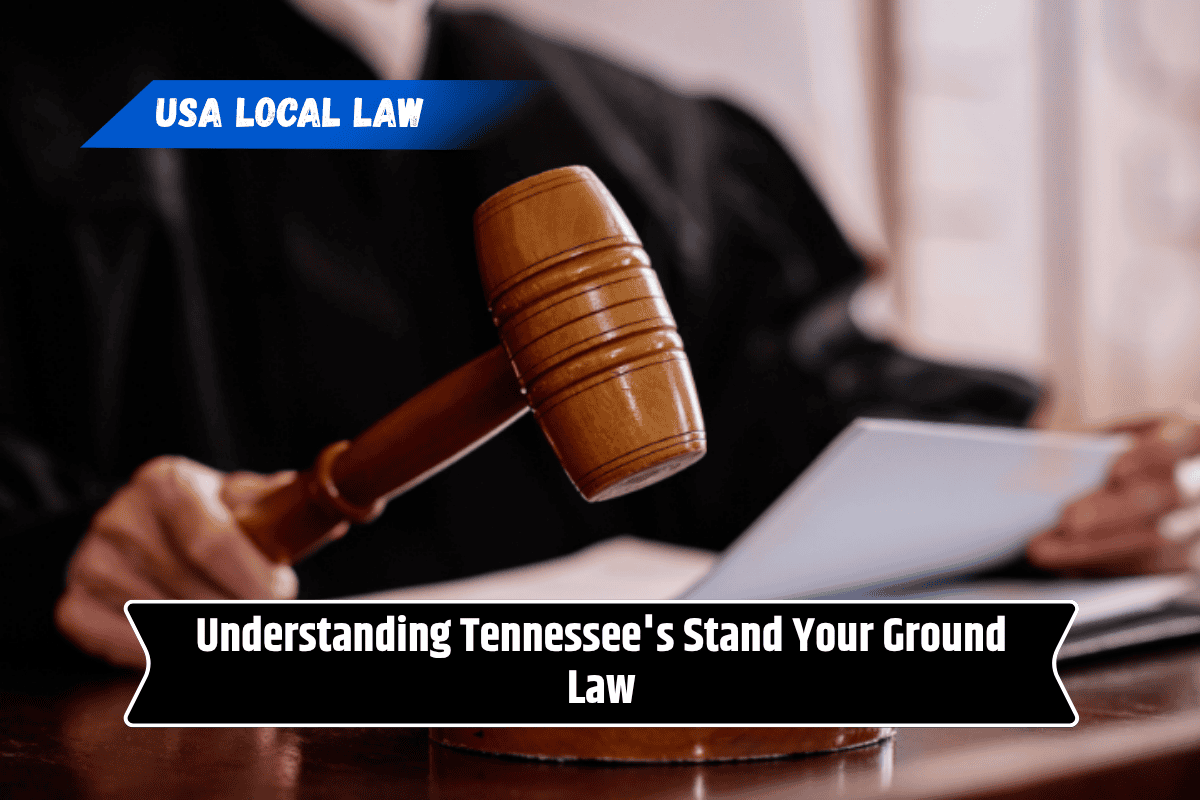Tennessee’s Stand Your Ground law has been a topic of much discussion, especially when it comes to self-defense. Many people have heard about this law but don’t fully understand what it means, when it applies, and what it allows you to do.
This article explains Tennessee’s Stand Your Ground law in simple terms, especially for people who may not be familiar with legal language. Whether you’re a resident or just curious, this guide will help you understand your rights under this law.
What Is the Stand Your Ground Law?
Tennessee’s Stand Your Ground law gives people the legal right to use force, including deadly force, to protect themselves if they feel threatened. This law removes the “duty to retreat,” meaning that if you’re in a place where you are allowed to be and someone threatens you, you don’t have to run away before defending yourself.
This law is part of Tennessee’s self-defense laws, found in the Tennessee Code Annotated (TCA) § 39-11-611.
Where Does the Law Apply?
The Stand Your Ground law applies if you are:
Inside your home
Inside your car
Inside your place of business
Or in any place you have a legal right to be
As long as you’re not doing anything illegal and you didn’t start the conflict, you have the right to defend yourself if someone tries to harm you.
When Can You Use Force?
You can use force if:
You reasonably believe that someone is about to seriously hurt or kill you or someone else
The person is trying to commit a violent crime, like robbery or assault
You’re not the one who started the fight or conflict
If these conditions are met, you have the legal right to defend yourself without backing away or running.
What Counts as “Reasonable Belief”?
“Reasonable belief” means that an average person in the same situation would also believe that they were in danger. It doesn’t mean you have to be right, but your reaction must be based on what seems reasonable at the time.
For example, if someone points a gun at you and threatens you, it’s reasonable to believe you’re in danger and respond with force to protect yourself.
What If You’re in Public?
The Stand Your Ground law also applies in public places, not just at home. If you’re in a store, parking lot, or even walking down the street, and someone threatens you with deadly force, and you didn’t start the situation, you can defend yourself.
However, your actions will be reviewed to check if they were truly necessary and reasonable.
When Does This Law Not Apply?
The Stand Your Ground law doesn’t apply if:
You are breaking the law at the time of the incident
You were the person who started the conflict
You use force after the threat has already ended
You are in a place you don’t have the right to be
In these cases, your use of force may not be protected by the Stand Your Ground law and could lead to criminal charges.
Legal Protection Under the Law
If you meet all the conditions of the law, you may not be arrested or charged with a crime for defending yourself. The law gives you legal protection if you act within your rights. Still, law enforcement officers will investigate, and a court may need to decide if your actions were truly legal.
Important Points to Remember
You must have a legal right to be in the place where the incident happens.
You must not be doing anything illegal.
You must believe that the threat was real and serious.
You cannot be the one who caused the conflict.
Your response must match the level of threat.
Tennessee’s Stand Your Ground law is designed to protect people who need to defend themselves from serious threats. It allows you to use force, including deadly force, if you believe you’re in real danger and you’re not the one who started the problem. But it’s very important to understand when the law applies and when it doesn’t.
If you’re unsure about your rights or ever involved in a situation like this, it’s always best to talk to a lawyer. Knowing the law helps you stay protected, stay safe, and make the right decisions.
